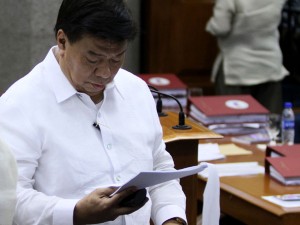Senate ratifies bill to remove taxes on international carriers, shippers
MANILA, Philippines – The Senate has ratified a bill that would remove the taxes now being imposed on international carriers and shippers, resulting in more tourist arrivals and lower and more affordable fares.
Under the measure, Senator Franklin Drilon said the 2.5 percent Gross Philippine Billings Tax (GPBT) for carriage of persons and their excess baggage that international carriers and shippers were mandated to pay under the current tax code would be waived, “provided that the home country of these foreign carriers will agree to give a similar tax exemption to Philippine carriers.”
The three percent common carriers’ tax (CCT) being imposed on the passengers and their excess baggage, would not also be applied as proposed in the bill.
“The removal of these taxes will improve the present situation where our tax policies seem to directly contravene our tourism goals,” Drilon said in a statement on Wednesday.
He said the bill, once enacted into law, would result in increased tourist arrival and lower and more affordable fares.
“We hope to spur capacity growth of the passengers’ traffic in our country both in international air transport and sea transport. We are targeting 10 million arrivals by 2016. To be able to achieve this goal, we need available capacity of 15 million seats. But currently, we only have 6 million seats. Therefore, we need nine million seats more,” Drilon said.
“We hope that this bill will be catalyst for capacity growth,” he said.
With the passage of the bill, Drilon said international arrival is expected to increase to 5.55 million in 2013, 6.75 million in 2014, 8.126 million in 2015 and 10 million in 2016.
“The Department of Tourism estimates that the increase in tourist arrivals will generate P455 billion in 2016 and will provide six million jobs,” he pointed out.
The enactment of the bill into law, Drilon said, would also translate traveling costs for overseas Filipino workers who would be enjoying lower fares to the country.
“It will also lower business costs for domestic carriers with foreign operations as soon as the tax exemptions on their gross billings are reciprocated by other countries,” he further said.
